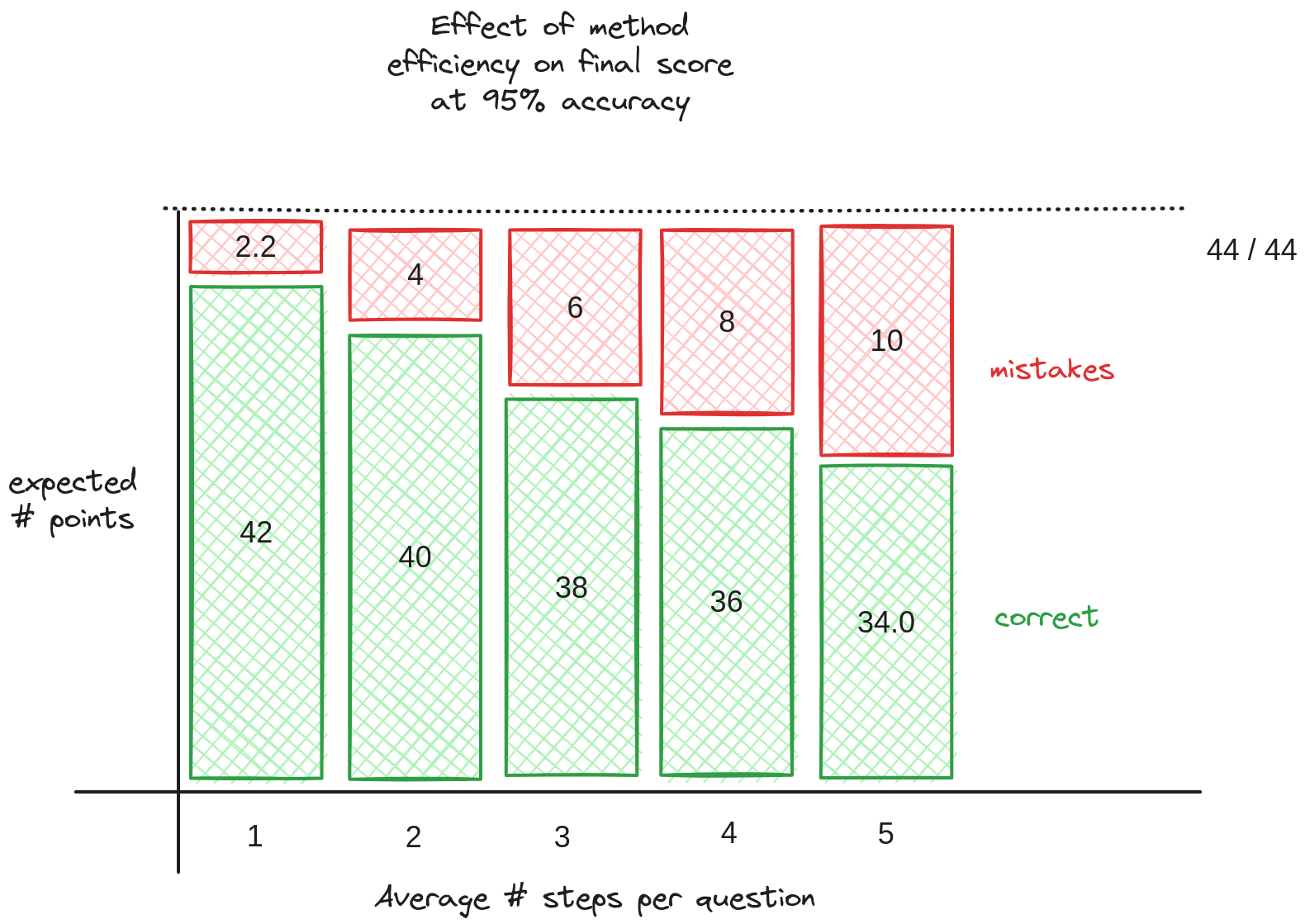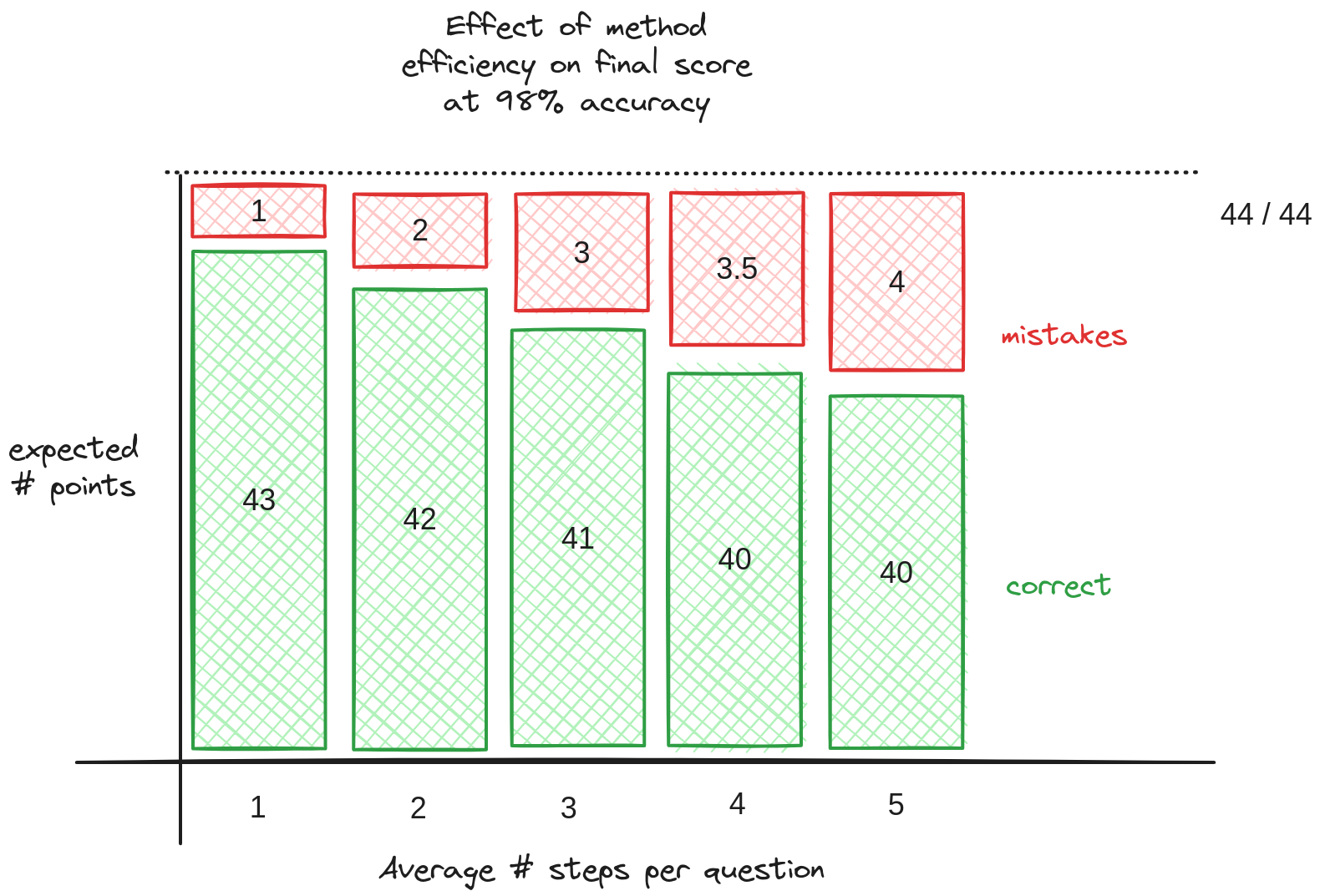Careless Errors
As we saw in the section on how the SAT converts raw scores to scaled scores, just a few mistakes can drammatically lower your score. And since you aren't awarded partial credit anywhere, it's critical that you don't lose points on questions you know how to answer.
What counts as a careless error?
The answer is probably a little more complicated than you think. The word careless implies that if you just try a little harder, then you will avoid these mistakes. Many students even believe that they will make fewer careless errors on test day because they will be 'more careful'. Unfortunately, this is not the case. 'Careless' errors are not caused by a lack of care. They are caused by many factors, many of which are out of your control, such as your environment, your mood, and your energy levels. For simplicity's sake, we will continue to refer to careless errors as 'careless', but we will keep in mind that this is not the most accurate term. And we'll rephrase the question to something a little more useful:
What causes us to make mistakes when we otherwise understand how to solve the problem?
And even more importantly:
What can I do to minimize the number of mistakes I make on questions that I already know how to answer?
As a human being, you are inevitably going to make mistakes. Careless errors are some of the hardest to fix because fixing them might require rewiring your nervous system and changing deeply ingrained habits. There is one way, however, that will vastly reduce the number of careless errors you make, and that's reducing the number steps you take to solve each problem. Simply put, you are your own worst enemy. The more times you touch the algebra, the more likely you are to screw up. So your goal while studying should always be this:
Find a better way.
This is as true, if not more true, for easy questions as for hard ones. After all, 'careless' errors occur on questions we already know how to answer . So almost by definition, these mistakes occur on easy questions.
How does the number of steps per question affect your score?
Let's consider an example. Imagine you're a math wiz, and you know how to solve every single question. But every time you complete a step of algebra, there's a chance you make a small mistake. If your probability of making a mistake is 5%, then you will make a mistake about 1 in every 20 steps. How does this affect your score? Well, of course, the effect will depend on the number of steps you take, on average, to solve each problem.
This graph illustrates how the number of steps per question affects your score.

In this scenario, if even if you have a 95% accuracy rate on each step and you solve every problem in one step, you will still make a mistake on about 2 in every 44 questions. And that's fine. But notice how quickly your score drops every time you add an average step: about 2 points per added step! So even if you know the content very well, you could still wind up with just 34 / 44 raw points in the math. Not good!
Even if you bump your accuracy per step up to 98%, such that you only screw up a calculation one out of every fifty steps, your score still drops to 40/44 points if you use highly inefficient methods.

The best approach to reducing careless errors, therefore, is to simply get out of your own way as much as possible. And that means constantly thinking to yourself, 'how can I cut out more steps?'
Even small improvements will compound over time. Just think about some of the other things you can gain from reducing the number of steps per question:
- Fewer steps means fewer careless errors (already covered).
- Fewer steps means less time spent on each question.
- Fewer steps means less energy spent on each question.
- Solving a problem in two steps rather than five will make you feel like a champion.
- The techniques that enable you to cut out steps are usually transferable to other questions, especially the hardest questions on the test.